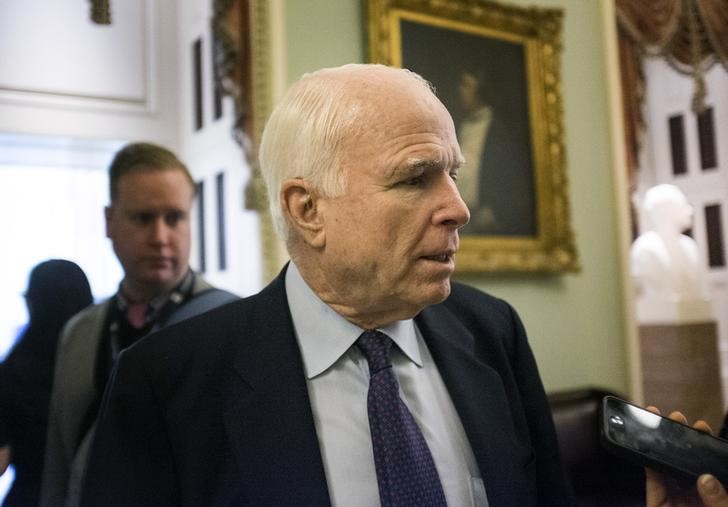Investing.com’s stocks of the week
WASHINGTON (Reuters) - Senator John McCain on Wednesday criticized the U.S. Air Force's "troubling lack of urgency" in ending dependence on Russian rocket engines for space launches, saying there was still no strategy to replace them a year after Moscow seized the Crimea.
"Continued reliance on Russian rocket engines is unacceptable and it's time the Air Force conduct itself accordingly," McCain, chairman of the Senate Armed Services Committee, told a hearing with senior Air Force officials.
McCain said Congress had given the Air Force $220 million this fiscal year and set a deadline of 2019 for replacing the engine.
Congress is pushing for development of a U.S. engine amid rising tensions between the United States and Russia over Moscow's annexation last year of the Crimea region of Ukraine.
"Instead of giving the effort the level of attention needed, the Air Force has wasted a year doing very little to end our reliance on Russian rocket engines," McCain said.
"If the Air Force is unwilling to do what is necessary to meet the 2019 deadline, they are going to have to figure out how to meet our space launch needs without the RD-180 (Russian engine)," he said.
McCain made his remarks a day after Air Force officials told lawmakers they planned to release a draft request for proposals next month and could award initial study contracts by the end of the 2015 fiscal year on Sept. 30.
The officials said the Air Force planned to focus the competition on launch services rather than development of a new American engine, since any engine must be closely integrated with the rocket it fuels.
McCain told Reuters after the hearing that he favored the Air Force's more commercial approach, which would allow bidders to offer their own designs.
The Russian-built RD-180 engine now powers the Atlas 5, one of two rockets used by United Launch Alliance, a joint venture of Lockheed Martin Corp (NYSE:LMT) and Boeing Co, which launches most big U.S. military and intelligence satellites.
Privately held Space Exploration Technologies, or SpaceX, expects to be certified by June to compete for some of those launches, but it may be years before its Falcon Heavy rocket is certified to launch the heaviest intelligence satellites.
